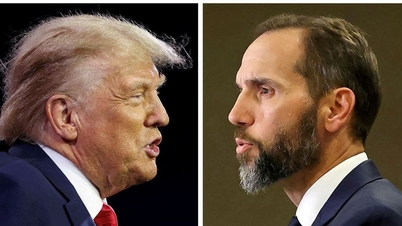Aileen M. Cannon, the federal judge tasked with presiding over the classified documents case involving former President Donald Trump, has little experience presiding over criminal trials, raising questions about her ability to handle what could become an extremely complex court battle, according to The New York Times .
Judge Cannon, 42, was appointed to the federal bench — a lifetime position — by Trump in November 2020, shortly after his failed bid for a second term. She had never served as a judge at any level before, and because about 98% of federal criminal cases are resolved by plea bargains, she had little opportunity to learn how to preside over a trial.
Bloomberg Law’s database lists 224 criminal cases assigned to her, and The New York Times identified only four that went to trial. All four were relatively routine matters, such as a person with a criminal record being charged with illegal gun possession. The four cases took a combined 14 days to complete.

Judge Aileen M. Cannon
SCREENSHOT THE NEW YORK TIMES
Cannon’s suitability for such a high-profile and high-stakes case has drawn attention amid allegations that she showed bias in Trump’s favor last year, when she presided over a case in which Trump filed a complaint against the FBI for a raid on his Mar-a-Lago resort.
In that case, she shocked legal experts by interrupting the investigation, arguing that Mr. Trump could receive special protections as a former president. But an appeals court overturned her ruling, finding that she had no legal authority to intervene.
“She’s both an inexperienced judge and a judge who has previously indicated that she thinks the former president should be treated under special rules, so who knows what she’s going to do about those issues?” Julie O’Sullivan, a professor of criminal law at Georgetown University and a former federal prosecutor, told The New York Times .
Trump pleads not guilty in federal classified documents case
In theory, Judge Cannon could recuse herself from the case for any reason, or special prosecutor Jack Smith could request that she do so under federal law. Federal law requires judges to recuse themselves from cases if their “impartiality is reasonably likely to be questioned”—and, if she refuses, she could ask an appeals court to order her to recuse herself.
However, there is no indication that either side is considering taking that step — or what the legal basis for doing so would be.
The appeals court last year found that Cannon was wrong on jurisdictional grounds, not that she was biased. And judges presiding over cases involving the president who appointed them is not new. Notably, in the case over Trump’s search warrant, two of the three appeals judges who overturned Cannon’s ruling were also appointees of the president.
By filing the indictment in Florida, where most of the alleged crimes occurred, rather than Washington, DC, where the main grand jury investigating the case is located, Mr. Smith avoided a potential controversy over whether the case was tried in the right place. But in doing so, he faced the possibility that Judge Cannon might be assigned to preside over the trial.
Under the practice of the Southern District of Florida, the presiding judge is assigned randomly among judges who serve in the district where the case is filed or in the surrounding district. There are five active judges who are eligible to take Mr. Trump’s case, and Ms. Cannon is slightly more likely to be assigned than the others because half of her cases are from West Palm Beach, where Mar-a-Lago is located.
Several lawyers who have appeared before Judge Cannon in routine criminal cases have described her as generally competent and forthright, and not particularly sympathetic to defendants. At the same time, they say she is clearly inexperienced and can become angry when her actions are questioned or unexpected problems arise.
While Mr. Trump and his White House lawyers have picked many young conservatives to fill judicial vacancies while he was president, Judge Cannon is unusually young and inexperienced. She was just 38 when she was appointed and had been working on appellate matters as a paralegal in Florida, and little is known about her career up to that point.
However, the then-leader of the US Senate, Republican Senator Mitch McConnell, pushed for her confirmation in the lame duck Senate after the 2020 election. Her nomination received little attention and did not receive particular support from Democratic lawmakers. She was confirmed in a 56-21 vote, with 12 Democrats voting in favor and 44 Republicans voting in favor.
Source link







![[Photo] Prime Minister Pham Minh Chinh meets with US business representatives](https://vphoto.vietnam.vn/thumb/1200x675/vietnam/resource/IMAGE/2025/5/13/5bf2bff8977041adab2baf9944e547b5)































































































Comment (0)